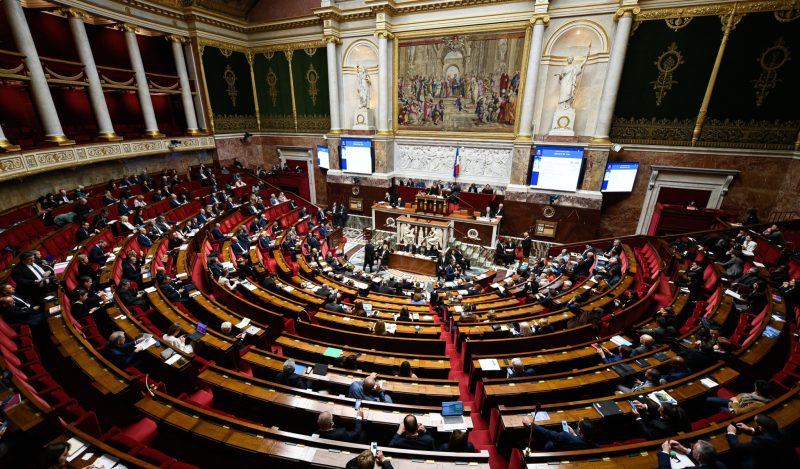I borrowed this title from an essay by the late, great Michael Crichton, appended to his 2004 novel State of Fear. I’m also going to borrow rather liberally from both the essay and the novel itself, since I doubt most of you have read it or intend to, even though you should. I will attempt to provide a brief synopsis, one relevant to both his point and mine, without giving too much away (you know, in case you do want to read it).
The politicization and commercialization of science is something of a recurring theme in many of Crichton’s best-known novels, such as Congo, Timeline, Prey, and of course, Jurassic Park. A Harvard-trained MD, Crichton regularly used his thrilling plots to argue that humanity must embrace science as a tool but not allow it to become our master. As a novelist, he specialized in demonstrating the chilling consequences of the latter, usually quite dramatically, with people getting eaten by dinosaurs or gorillas or nanobots or what have you.
In the essay cited above, Crichton writes about a scientific theory that emerged early in the last century. It was widely and enthusiastically embraced by “Progressives” in government, from Woodrow Wilson to Oliver Wendell Holmes to Louis Brandeis. Well-known people from other walks of life—what we would today call “elites”—were also quick to get on board: Alexander Graham Bell, Leland Stanford, H.G. Wells, George Bernard Shaw.
So was academia, as big corporate money, via “charitable organizations” like the Carnegie and Rockefeller Foundations, flowed into “research” to promote the theory. That research was carried out at Harvard, Yale, Princeton, Stanford, and Johns Hopkins, among other top universities. A national center, the Cold Springs Harbor Institute, was created specifically to further those efforts, which had the full support of the National Academy of Sciences, the American Medical Association, and the National Research Council.
Perhaps you have guessed by now that the theory in question was eugenics, which postulated “a crisis of the gene pool leading to the deterioration of the human race.” As we all now know—well, perhaps not all of us—eugenics turned out not to be a science at all but rather a grotesque pseudo-science. “Its history is so dreadful,” notes Crichton, “and, to those who were caught up in it, so embarrassing, that it is now rarely discussed.”
Of course, Brownstone readers no doubt recognize that this thoroughly deplorable and utterly discredited theory is still alive and flourishing in at least one American institution. Among its earliest and most vocal proponents was Margaret Sanger, who founded Planned Parenthood specifically to carry out the goal of the eugenics movement. She, along with other purveyors of the pseudo-science, believed the only way to save humanity was to rid it of “human weeds,” as she called them, including mentally disabled people and Blacks. At Planned Parenthood, that mission continues unabated, despite the organization’s recent attempt to distance itself from its founder.
But I digress. While an important point, that is not the focus of this essay nor of Crichton’s novel.
The plot of State of Fear revolves around the environmental movement, especially as it relates to “global warming” or “climate change”—whichever is the label du jour. I can’t keep track. I honestly think it depends on the season: In summer, it’s “global warming,” while in the midst of a frozen winter, or following a late-spring snowfall, or during the fall hurricane season, it’s “climate change.”
Nevertheless, Crichton’s novel is not specifically anti-warming. Rather, it is what we might call skeptical, in the healthiest scientific sense of that term. What Crichton objects to, as the title of his essay suggests, is the way the “science” surrounding global warming has become so thoroughly politicized, in much the same way the “science” surrounding eugenics became politicized. Today’s movement, he observes, follows the same pattern as that earlier movement, with the same kinds of people behind it, the same push by governments, universities, and corporations, the same big money driving it.
The reason for all this, Crichton argues through a character in the novel (but it’s one of the good guys, so we know it’s Crichton speaking), is to keep the population in a constant state of fear, so they can be more easily manipulated. “Every sovereign state,” the character insists, must “exert control over the behavior of its citizens, to keep them orderly and reasonably docile….And of course we know that social control is best managed through fear.” Eugenics served that purpose in the early 20th century, as did the “Red Scare” in the middle part of that century (which was real enough, but still useful) and global warming at the end of the century and on into the 21st.
The implications of this observation for our current situation are profound. Obviously, climate alarmism is still around and still serves the same purpose, but in the last few years it has taken a backseat to an even more immediate and pressing “crisis:” the COVID-19 pandemic. That’s not to suggest the pandemic wasn’t real—although we will probably never know the full truth of it—but to say that governments around the world have indisputably used it to further control us, just as Crichton prophesied 19 years ago.
In fact, if you read State of Fear and substitute “coronavirus” for “global warming,” you will have a very contemporary story indeed—right down to the way skeptics are treated in the book. (Spoiler alert: Big Enviro attempts first to discredit and then ultimately eliminate them, which may again be a bit over the top, but perhaps not. Time will tell.)
Ultimately, what Crichton emphasizes is the importance of rejecting politicized science and insisting that governments and researchers follow the actual science to its honest conclusions, whatever those may be. Doing so will likely not benefit the powers-that-be, which is why they so vigorously resist the idea, but it will certainly benefit the rest of humanity.
An earlier version of this piece appeared in American Thinker
Published under a Creative Commons Attribution 4.0 International License
For reprints, please set the canonical link back to the original Brownstone Institute Article and Author.









